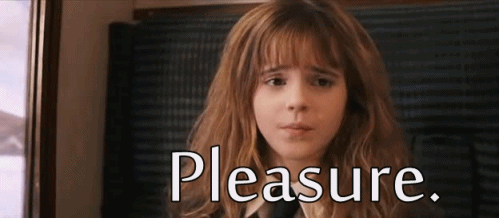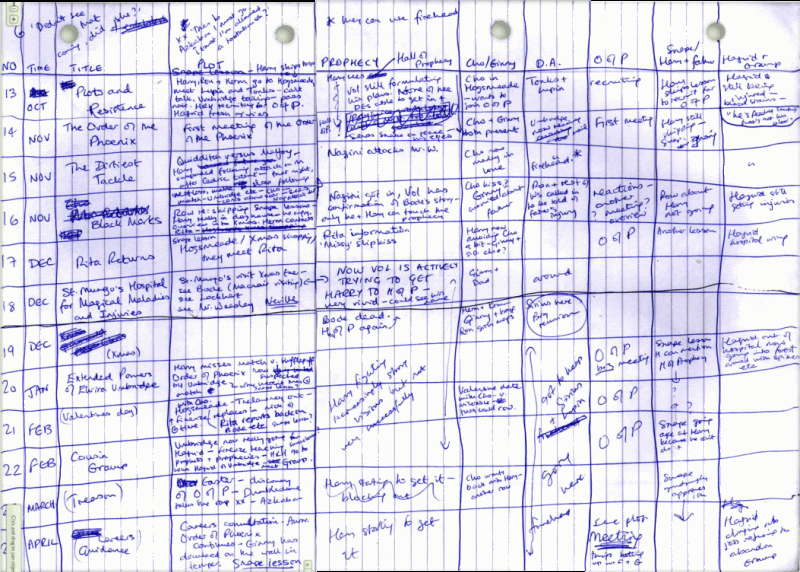Greetings everyone and welcome to another fun-packed week at projecteducate! This week has been teamed back up with CRLiterature and will be focussing on story planning!
What do we mean by “story planning”?
Planning a story sounds like an easy task- even at primary school level you are taught that a story must have a beginning, a middle and an end. However there are plenty of important elements that build a story; a lot of prep work that can actually improve the quality of your novel writing in the long run. This can cover almost anything- from world building, character development, creating past history and plot mapping etc. There is a huge range of elements that can turn your idea into a strong well-structured novel.
Are you going to tell me how to write a novel?
Not exactly. We can’t tell you how to approach your novel and how to write it from chapter 1 through to the end. We’re not giving lessons on sentence structure or making your story “work”, but instead providing some tools and suggestions which can help you in the long run strengthen your story. This week is not about particular genres or styles, or even story lengths. It is up to you as a writer what you do with these resources.
What can I expect from this week?
This week is all about discussion and sharing techniques in story planning. It also delves into several elements that you may need to consider before you even write your first chapter. The idea of this week is to expand your creative thinking and take control of your story beyond sitting and typing away at a first draft. The articles are a collection of suggestions and advice- ideas for you to consider and try for yourself.
Why Plan?
Imagine making a cake with no recipe to guide you. You want to make the most beautiful, best tasting cake in the entire world, but to do so you need to careful measure and consider what ingredients to use. How do you decide what ingredients to add? And how much? You know if you jump in and “wing it”, it may make a half decent cake, but is it the best cake you could have made? Wouldn’t planning ahead have helped?
Take the Harry Potter series for example. Do you think JK Rowling wrote it with a whimsical nature? No, she carefully structured every detail of those books, meticulously planning even beyond the plot. Every character had a back story; every sub plot wove into the main plot. I am always impressed how significant Tom Riddle's Diary in the Chamber of Secrets became in the later books, unbeknown to the readers who just glazed through that second book. If you have ever viewed or read her interviews and seen the material, the level of diagrams, illustrations, notes and passages that never entered the final book, but added value to the series, you will be impressed. It is easy to say that the high level and dedication to planning her story is what contributed to its popularity. Anyone can send a boy to wizard school, but it’s the weaving of plot, character, world etc. that make the story unique and successful.
Here is one example of a J K Rowling story planning:
Rowling is not the only popular author who has such a methodical and detailed planning method to her stories. In fact, story planning creates the background to most of the greatest novels out there and perhaps the reason they are so popular falls down to the intricate detail a writer puts into their novel?
Some awesome resources you should read!
![]() 25 Ways To plot, Plan and Prep Your Story
25 Ways To plot, Plan and Prep Your Story ![]() Famous Authors' Handwritten Outlines for Great Works of Literature (a MUST VIEW)
Famous Authors' Handwritten Outlines for Great Works of Literature (a MUST VIEW)![]() Fantasy Worldbuilding Questions
Fantasy Worldbuilding Questions![]() The Art of Character Development
The Art of Character Development
:thumb304034701:
Unstick your Plot - A guideThe Random Encounter – The Guide to Moving Your Story Forward
The classical random (there's always a classic.): This is the sort you see in just about any old RPG, or RPG comic, and probably most current ones as well – that person or thing you randomly meet so you can be sent off in a random direction and never have to meet them again.
Yeah, it works well enough for games I suppose – but I don't recommend it in a story… get around it wherever possible. One thing I saw in the Wheel of Time books (by Robert Jordan) was having the rumors and such be heard OFFSCREEN, and delivered to the characters by someone they know. You still get your information, but without the useless extra faces.
The only real reason to put in someone random is for some bit of symbolism, as a general rule, so unless you wanna get real deep – or are prepared for your readers wondering if the old farmer is actually a reference to an ancient Norse God – you might wanna avoid the classics.
Worldbuilding Part1: MapmakingWorld Building Part 1: Map Making
Welcome all to World Building, the talk show that helps with all aspects of writing and creating. Please welcome your host…Seleane Gray!
Hello, everyone. Today we’ll be working on maps. There are a few types of maps:
1. The World Map – this is where you will see an overview of your world.
2. The City Map – this is where you will see each city your character is in with intricate detail.
3. The Building Map – this is where you will see each building your character is in with elaborate detail.
4. The Ship Map – also known as the Transportation Map, is for the vehicles—i.e. ships, air balloons, and anything your imagination can make up—it will show each one in the range you wish (this map isn’t necessary but I’ll show you anyway).
So let’s get started!
First, you’ll need to find/buy/gather the following:
1. A large, clean surface, preferable size to be 4’ by 2.5’
2. Graph paper an
Getting Ideas for a StoryNotes before you start
Always, always, always keep a notebook or sketch pad with you. You may come up with a random idea and want to jot it down. If you have no immediate access to a paper and pen, pull out a cell phone, or other electronic and find a place to save it on that.
Also, when you get in a comic/story writing mood, focus on it, and think about it all the time when you aren't with people. If you have friends who will listen, bounce some ideas off them.
I. Character Development
Physical Features
Past
Personality
Comparison to Others
II. Plot
Start at the Beginning
Start at the Middle
Start at the End
III. The World
History/Creation
Physical Appearance
Natural Laws
IV. Take notes
1. Character Development
There are several places to start.
Physical Features
The easiest, in my opinion, is what your character looks like. A good way to go about this is think of things you like. Favorite hair color? Eye color? Skin tone? It's best to
Planning the Evil Plot

A half-guide, half-narrative on writing a story
brought to you by Super Editor
Basics
Before I start writing, I like to have some idea of where I'm starting, where I'm going, and how I'm going to end up there. Let's say that I want to write a comedy about an author who suddenly changes places with her Mary Sue. I usually jot down some basic ideas:
Characters:
Sarah, the author: ~13 years old, average-looking, glasses, rather tall and gangly
Ellemere, the Mary Sue: ~16 years old, long flowing hair, violet eyes, etc.
Forrest (Ellemere's love interest) : ~18, stereotypical pretty boy who is too dark and broody to make a good love interest
Leon: ~17, Ellemere's somewhat dorky friend who falls in love with her but is cast off to side in favor of Forrest
Tangent: For those of you who are confused, the ~ symbol means "about." I think it comes from math.
I like to draw, so I'd probably make doodles of these characters too. Drawing characters is a great way to develop th
Pre-Writing and Brainstorming.

Writing is a multi-step process. If Shakespeare were to just write whatever he wanted to with no prior planning, well…we probably wouldn't know who Shakespeare is today. Writing takes time, thought and a lot of organization in order for it to come out as one, cohesive work. In the midst of your random scribbling, many of your ideas may seem to be jumbled and in-cohesive. This makes it hard for you to really get your ideas in motion. How do you fix that? Well, the ultimate way to ensure flow with writing is to undergo Pre-Writing and a little organized Brainstorming.
There are several, critical points to Pre-Writing. For each point, write down whatever it is that entails of it.![]() Purpose
Purpose
~Why are you writing? Where do you plan to take your writing? Make sure you have a deep reason as to why you are writing. Wi
How to Write a NovelOr at least how I plan to write my novels. Right now I'm tweaking a novel for release (aka Fine Drafting it). No matter how essential this step is, fine drafting a book doesn't feel like real writing, so I thought I would flex my writing muscles by trying to recapture what it took to bring this book into existence. What burbled up from the morass seemed about as wiry as Jeffy's run through gangland in the Family Circus cartoon that never made it to print (ask your parents kids). So. I decided to iron the process out and streamline the steps into what you might call "Ikea Instructions for Writing a Novel" a short simple guide to the mechanical side of bringing a book together.
One word of warning though, some of this is untested advice. It is a combination of the way I did it as well as the way I now see that I should have done it. Whether or not it actually works I won't know until after I write the next book. So take what you read here with a grain of salt.
Brainstorming
Quick Guide: Story OrganizingA Quick Guide to Organizing Your Fantasy/Sci-Fi Novel
I'm going to try and briefly cover World Building specifically for Fantasy and Science Fiction (though it will apply in general to any setting), both major and minor Characters, and some basics of Timeline here. I am not going to walk you step by step through how to write your own story, but you should (hopefully) get some useful tips out of this.
I never used to organize my novels before I started writing. I have so many stories in my head, I would just pick one and start writing. I didn't have trouble keeping to the same details of a given character because I knew them so well. But after taking such a long break from writing Missing Puzzle Pieces, I really needed to do some serious work. I don't remember all the details I had in my head back when I started... in fact, I've completely forgotten the original ending. For those of you who don't know my story, which starts
How to Start and Stay WritingI recently solicited my watchers to ask me writing questions that I would then attempt to answer in a writing guide such as this. This article is my first response, and there will be many more to come.
I've been asked to give advice on ways a writer can begin to put words on a page. The bottom line is as simple as this: sit your butt down and write.
Duh, right? It's the only way I know to actually write.
Sure, sitting your butt in a chair is easy, but getting your fingers to move and stay moving is a challenge. Here are three things that have helped me.
1) Have a goal.
Your goal can be as simple as "describe the person in this picture" or as ambitious as "write 1,000 words of my novel." Having a goal will drive you forward and motivate you to keep writing. Whatever you do, don't move your butt from your chair until you accomplish your goal.
Other practical goals include setting a timer, writing to the end of a chapter or scene, and completing a particular section of an outline or numbe
The Writing ProcessWhat is the Writing Process?
Many of us learned that the writing process is made up of five parts: Pre-writing, Writing, Revision, Editing, and Publishing. Indeed, this process has been so ingrained, and the vocabulary and terms have become such a part of our education, that some students (and adults) feel as if writing is a formulaic, rigid thing—not unlike learning mathematics—that they simply never excelled in. Fortunately, this simply isn't true. While the five basic steps of the writing process are effective, they can only be effective if the people using the process understand the purpose of each step.
Experience has shown that many students do not know the purpose of drafting beyond a certain, vague understanding that you're supposed to "correct" or "fix" something for each new draft. It’s unfortunate, but it’s also been shown that students who are forced to Pre-Write in certain ways, even when they have been
How do you plan yours? 
We seriously want to know! Share either by writing your own journal/article and linking it back here, or sharing some methods you have in the comments of this article. If you are unsure abut your techniques, why not ask some questions, or share advice you have been given! At the end of the week, we'll be wrapping some of these comments and journals into another article, so we welcome everyone to get involved!







